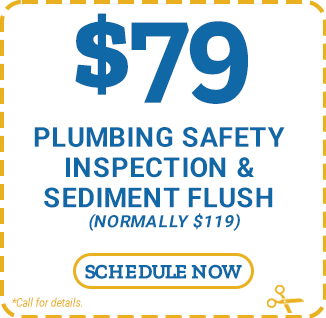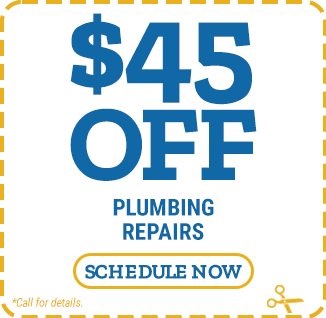Pure Bliss: Water Filtration Systems Unveiled
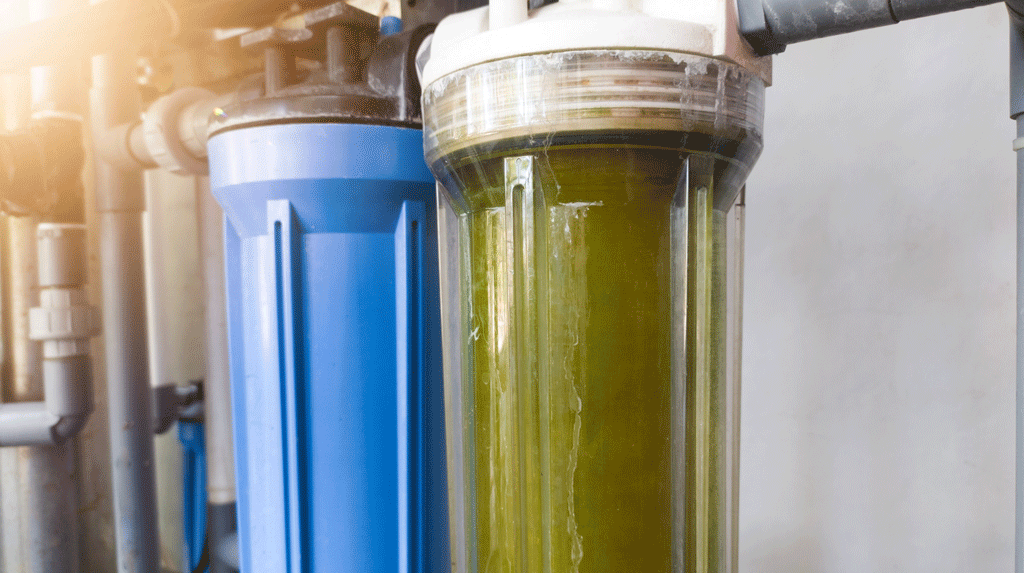
Pure Bliss: Water Filtration Systems Unveiled
You’re standing in your kitchen, a glass of water in hand, and you pause.
You’ve heard the reports, read the articles, and now the question of what’s really in your water is lingering in your mind. It’s a valid concern, one that homeowners like you, especially in the prime of your life, are increasingly considering.
You value quality, efficiency, and most importantly, the health and safety of your home environment.
In this article, we’ll navigate the intricate world of water filtration systems.
You’ll gain insights into how these systems work, why they are crucial for your home, and what options are available to you.
We’ll guide you through the process of selecting, installing, and maintaining the perfect system to ensure that the water you rely on every day is as pure as nature intended.
What is Water Filtration Systems?
Water filtration systems are sophisticated solutions designed to remove unwanted substances from your water supply.
Whether it’s sediment, chlorine, heavy metals, or bacteria, these systems are engineered to filter out impurities that can affect the taste, smell, and safety of the water you consume.
By integrating a water filtration installation into your home, you’re not just investing in a product; you’re investing in peace of mind and a commitment to health.
The Importance Of Water Quality
When you think about the factors that influence your health and well-being, water quality should be at the top of your list.
It’s not just about quenching thirst or cooking; it’s about the very essence of what sustains us. The importance of water quality cannot be overstated, as it impacts every aspect of our daily lives.
From the water that flows through our showers to the water that brews our morning coffee, its purity is paramount.
1.Health Implications of Water Quality
Water quality affects more than just the taste of the water you drink. It has far-reaching implications for your overall health.
High-quality water can improve your well-being, while poor quality water can contribute to a range of health problems.
Contaminants such as heavy metals, chlorine, pesticides, and microbial pathogens can sneak into water supplies and, over time, can lead to serious health issues, including gastrointestinal disorders, reproductive problems, and neurological disorders.
For the young, the elderly, and those with weakened immune systems, the risks are even higher.
2.Potential Contaminants in Tap Water
The potential contaminants found in tap water vary widely depending on where you live, the source of your water, and how it’s treated before reaching your tap.
Common culprits include lead, which can leach from old pipes, and chlorine, commonly used to disinfect public water supplies but can react with other organic compounds to form harmful byproducts.
Agricultural runoff can introduce pesticides and herbicides into the water, while industrial waste can add a slew of toxic substances.
3.The Threat of Microbial Pathogens
Moreover, the presence of microorganisms like bacteria, viruses, and parasites in untreated or poorly treated water can lead to waterborne diseases, which are still a significant concern in many parts of the world.
Even in developed countries, outbreaks of illnesses such as cryptosporidiosis and giardiasis can occur, reminding us of the critical role that water treatment and filtration play in public health.
4.The Role of Water Filtration Systems
Understanding the importance of water quality means recognizing that the water we often take for granted needs to be protected and treated with care.
Water Filtration Systems come into play as a proactive measure, ensuring that the water in your home remains safe, clean, and beneficial to your health. They are not just a line of defense but a vital investment in the health and future of your family.
5. Taking Control of Your Water Quality
By addressing water quality issues at the point of use in your home, you’re taking control of your health and ensuring that you’re not exposed to potentially harmful contaminants.
It’s a step that shows foresight and an understanding of the central role that water plays in maintaining a healthy lifestyle. After all, the quality of the water you use is as important as the quality of the food you eat or the air you breathe.
It’s essential to life, and ensuring its purity is one of the most important health decisions you can make.
Also read: Plumbing Service: Solving Your Plumbing Emergencies
Types of Water Filtration Systems
In the quest for pristine water, understanding the Types of Water Filtration Installations available is crucial.
Each system employs a unique method to combat various contaminants, and choosing the right one can significantly impact the quality of your water.
- Activated Carbon Filters
Activated Carbon Filters are a popular choice for many homeowners.
They use a bed of activated carbon to remove impurities through chemical adsorption. These filters are particularly effective at removing chlorine, volatile organic compounds (VOCs), and taste and odor from water.
They’re affordable and easy to maintain, making them an excellent option for those new to water filtration.
Pros:
- Cost-effective and low maintenance.
- Improves taste and removes odors.
- Reduces a wide range of contaminants.
Cons:
- Not effective against all types of contaminants, such as minerals and salts.
- Filters need regular replacement to maintain effectiveness.
2. Reverse Osmosis Systems
Reverse Osmosis Systems take filtration a step further. They force water through a semipermeable membrane, trapping contaminants on one side and allowing clean water to pass through.
These systems are adept at removing a broad spectrum of impurities, including dissolved salts, bacteria, and pyrogens.
Pros:
- Removes a wide array of contaminants.
- Provides excellent water purification.
Cons:
- More expensive upfront cost and maintenance.
- Can waste water in the filtration process.
- Requires adequate water pressure to function effectively.
3.UV Purification
UV Purification systems use ultraviolet light to disinfect water, effectively killing bacteria, viruses, and other pathogens. This method of purification is quick, efficient, and chemical-free.
Pros:
- Highly effective at disinfecting water.
- Environmentally friendly with no chemicals needed.
- Low energy requirements.
Cons:
- Does not remove non-living contaminants like heavy metals or salts.
- The clarity of the water is essential for UV light to penetrate effectively.
Each of these systems offers a unique approach to water filtration, and often, a combination of systems is used to provide comprehensive water treatment.
For instance, a home might use both a carbon filter for taste and odor improvement and a reverse osmosis system for overall purification, with a UV light as a final safeguard against microbes.
When selecting a Water Filtration Installation, it’s essential to consider the specific needs of your household, the quality of your local water supply, and the types of contaminants you need to address.
Consulting with a water quality expert can provide valuable insight into which system, or combination of systems, will best serve your home’s needs.
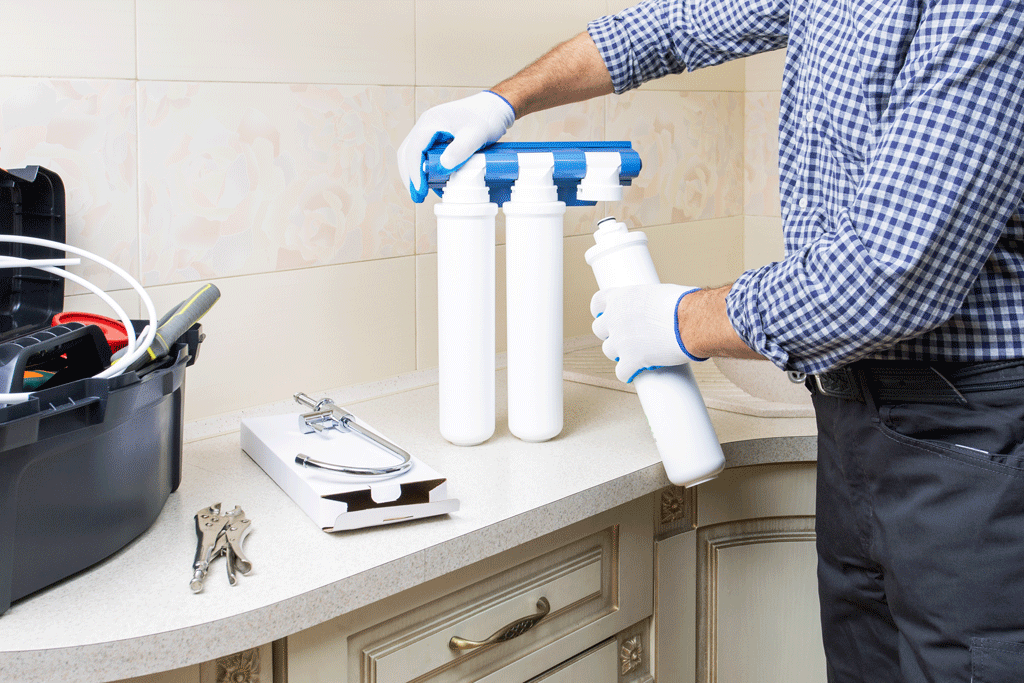
Photo By CHUYKO SERGEY at Shutterstock
Installation and Maintenance of Water Filtration Systems
Proper Installation and Maintenance are the keystones of ensuring that your Water Filtration System operates at its best.
Whether you’re a DIY enthusiast or prefer the assurance of professional installation, understanding the process and requirements is essential for the longevity and efficiency of your system.
The Installation Process
The installation of a water filtration system can range from straightforward to complex, depending on the type of system you choose.
For simpler under-sink carbon filters, many homeowners opt to take on the installation themselves. These typically involve connecting the filter to your existing plumbing and can often be completed with basic tools and a bit of know-how.
However, when it comes to more complex systems like reverse osmosis or whole-house filtration units, professional installation is highly recommended. These systems can require modifications to your plumbing and have specific requirements for pressure and waste connections.
A professional can ensure that the system is installed correctly, which is crucial for its effectiveness and can also prevent potential damage to your home’s plumbing.
Pros of Professional Installation:
- Ensures correct setup and functionality.
- Prevents potential leaks or water damage.
- Often comes with a service warranty.
Regular Maintenance Tips
Once your Water Filtration Installation is in place, regular maintenance is vital. Here are some tips to keep your system running smoothly:
- Filter Replacement
One of the most critical maintenance tasks is replacing filters according to the manufacturer’s recommendations. Over time, filters can become clogged with contaminants, reducing their effectiveness and potentially affecting water flow.
- System Inspection
Regularly inspect your system for any signs of leaks or wear. Catching issues early can prevent more significant problems down the line.
- Cleaning and Sanitizing
Some systems require periodic cleaning or sanitizing to maintain optimal performance. This might include cleaning sediment pre-filters or sanitizing storage tanks.
- Professional Servicing
Even if you’re comfortable performing basic maintenance, having your system professionally serviced can extend its life and ensure it’s working efficiently.
This is particularly important for complex systems like reverse osmosis units, which have more components that can wear out or require adjustment.
- Water Testing
Periodic water testing can help you determine if your system is functioning correctly. If you notice a change in taste or quality, it might be time for maintenance or a filter change.
By following these guidelines for Installation and Maintenance, you can ensure that your Water Filtration System continues to provide clean, safe water for your household for years to come.
Remember, the investment in a water filtration system is an investment in your health and home, and proper care is the best way to protect that investment.
Also read: How A Skilled Plumber Solves Common Plumbing Problems
Cost-Benefit Analysis of Water Filtration Systems
When considering a Water Filtration System, conducting a Cost-Benefit Analysis is a prudent step to understand the financial implications and the long-term value it brings to your home and health.
Breaking Down the Costs
The initial cost of a water filtration system can vary widely based on the type of system you choose.
Simple pitcher filters or faucet attachments can be as low as $20-$50, while more sophisticated under-sink or whole-house systems can range from $200 to several thousand dollars.
The key factors influencing the price include the system’s complexity, the volume of water it can process, and the range of contaminants it removes.
Installation costs must also be considered. While some systems are designed for DIY installation, others require professional installation, which can add several hundred dollars to the overall cost.
Additionally, there are ongoing maintenance expenses, such as filter replacements, which can range from $20 to $100+ annually, depending on the system’s requirements.
Comparing Costs to Benefits
The benefits of installing a water filtration installation are manifold and extend beyond just the immediate improvement in water taste and odor. These systems can significantly reduce the risk of exposure to harmful contaminants, which can lead to long-term health benefits and potentially lower medical expenses.
Moreover, there are cost savings associated with reduced reliance on bottled water.
The average cost of bottled water for a family can run into hundreds of dollars per year, far exceeding the annual cost of filter replacements.
Additionally, water filtration systems can protect your appliances from scale buildup and extend their lifespan, saving money on repairs and replacements.
The environmental benefit, while not directly quantifiable in dollar terms, is another significant factor. By reducing the need for plastic bottles, you contribute to less plastic waste and lower carbon emissions associated with the production and transportation of bottled water.
Lastly, the peace of mind that comes from knowing your water is clean and safe is invaluable. While it’s difficult to assign a monetary value to this aspect, the assurance of protecting your family’s health is a significant return on investment.
While the upfront and maintenance costs of a Water Filtration installation can be substantial, the long-term health, financial, and environmental benefits often outweigh these initial investments.
A thorough Cost-Benefit Analysis will reveal that the advantages of having a reliable water filtration system in place are not just a matter of convenience but a wise decision for your well-being and wallet.
Also read: Plumbing Heroes: The Benefits Of Hiring A Professional Plumber
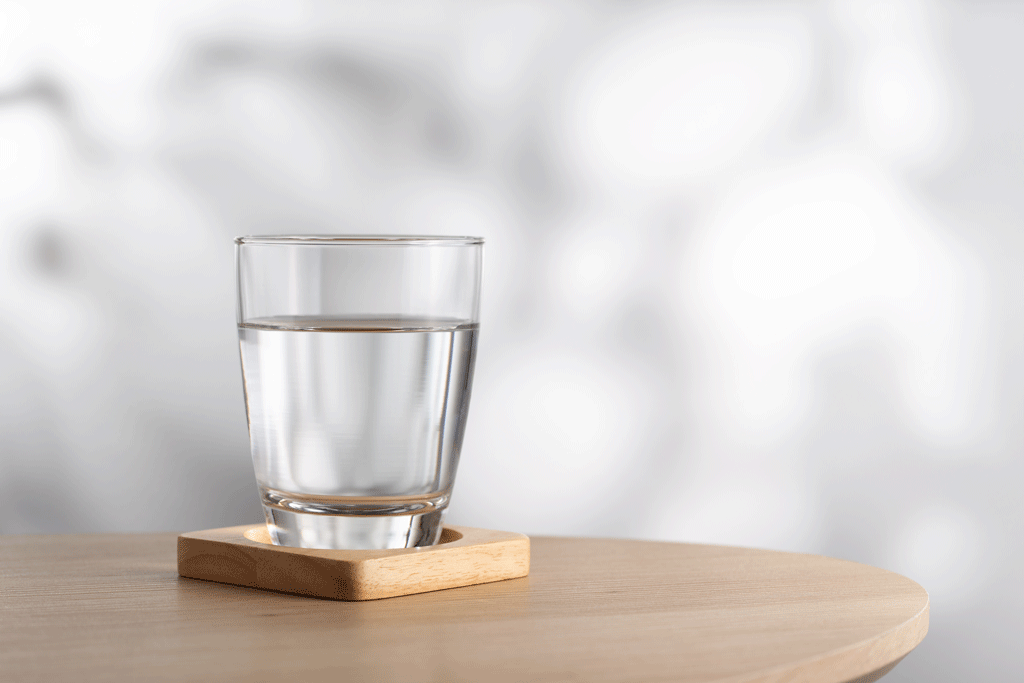
Photo By Emily frost at Shutterstock
Health and Environmental Impact of Water Filtration Systems
The decision to install a Water Filtration System in your home has far-reaching implications for both your health and the environment.
By understanding the Health and Environmental Impact of filtered water, you can appreciate the full scope of benefits that these systems provide.
Health Benefits of Filtered Water
Filtered water is synonymous with a healthier lifestyle. By removing contaminants such as lead, chlorine, and other harmful chemicals, water filtration systems can reduce the risk of certain health issues.
Clean, filtered water is essential for every bodily function, from digestion to detoxification. It can improve skin hydration, aid in weight loss by curbing appetite, and even improve cognitive function.
For individuals with compromised immune systems, such as the elderly or those with chronic illnesses, the importance of filtered water escalates.
It becomes not just a preference but a necessity for maintaining health. Moreover, filtered water is crucial for children whose developing bodies are more susceptible to the harmful effects of contaminants.
Environmental Benefits of Home Filtration Systems
The environmental advantages of using a home filtration system instead of bottled water are substantial.
The production of bottled water is resource-intensive, requiring large amounts of fossil fuels to manufacture and transport the bottles.
Furthermore, plastic water bottles contribute to the growing problem of plastic waste, much of which ends up in landfills or, worse, in our oceans, posing a threat to wildlife and ecosystems.
By contrast, home water filtration systems offer a more sustainable solution. They reduce the need for single-use plastics, cutting down on waste and pollution. Additionally, they are energy-efficient, especially when compared to the energy costs of producing and recycling plastic bottles.
The use of a home water filtration system also encourages the consumption of tap water, which, in most developed countries, undergoes rigorous testing and regulation to ensure safety.
By enhancing the quality of this water even further, filtration systems make it more appealing to drink, thus fostering trust in public water supplies and reducing the demand for bottled alternatives.
The Health and Environmental Impact of water filtration installations is profound.
Not only do they contribute to a healthier lifestyle by providing clean, safe drinking water, but they also offer an environmentally friendly alternative to bottled water. This dual impact underscores the importance of considering both personal and planetary health when choosing how to access your drinking water.
How to Choose the Right Water Filtration Systems for Your Home
Selecting the appropriate Water Filtration System for your home is a decision that should be tailored to your specific needs, household size, and the quality of your water supply. Here’s how to ensure you make the right choice.
Assessing Your Water Quality
Before you can choose the right system, you need to know what you’re dealing with. Testing your water is the first step.
You can purchase a home test kit or, for a more comprehensive analysis, send a sample to a laboratory. The results will reveal the presence of contaminants such as bacteria, heavy metals, chlorine, and more, which will influence the type of filtration system you need.
Considering Household Size and Water Usage
The size of your household and your daily water usage will determine the capacity of the filtration system you require.
A larger family or a home with high water usage will benefit from a more robust system, such as a whole-house filter, which ensures clean water from every tap. Smaller households or those with lower consumption might find an under-sink or countertop system sufficient.
Identifying Specific Needs
Every home has unique needs based on the health concerns and lifestyle of its residents. If someone in your home has a compromised immune system, you might prioritize a system that excels at removing bacteria and viruses.
If you live in an area with hard water, you might need a system that includes a water softener.
The Role of Professional Consultation
While it’s possible to assess your needs and install a system on your own, consulting with a professional can add immense value.
Water treatment experts can provide tailored advice based on a thorough understanding of your local water conditions and personal needs. They can also ensure that the system is installed correctly and efficiently.
Water Testing: The Foundation of Informed Decisions
Encouraging water testing cannot be overstated.
It’s the foundation upon which informed decisions are made. Knowing exactly what’s in your water allows you to choose a filtration system that targets those specific contaminants, ensuring that you’re not paying for unnecessary features or missing out on crucial ones.
Choosing the Right System for Your Home requires a thoughtful approach that considers several factors.
By starting with a detailed water quality assessment, considering your household’s size and needs, and seeking professional advice, you can invest in a water filtration system that provides peace of mind, knowing that your water is clean and your family’s health is protected.
How to Maximize the Benefits of Water Filtration Systems
When integrating a Water Filtration System into your home, the advantages extend far beyond the immediate improvement in water taste and quality.
Let’s delve into several facets that highlight the comprehensive benefits of having a dedicated water filtration solution in place.
Enhancing Home Value with Water Filtration Systems
Installing a Water Filtration System can be a strategic move that contributes to the overall value of your property.
Prospective homebuyers often view an existing high-quality water filtration installation as a desirable feature, one that promises clean water and reduced potential health risks. It’s a signal that the home has been cared for and that the previous owners were mindful of health and wellness.
In areas where water quality is a known concern, having a robust system in place can be a significant selling point.
It alleviates the new homeowner’s need to invest in and install their own system, offering convenience and peace of mind.
Additionally, it demonstrates that the home is equipped to handle the specific challenges of the local water supply, which can be a compelling advantage in the real estate market.
Water Filtration Systems and Family Health
The impact of a Water Filtration System on family health is substantial.
By providing consistently clean water, these systems play a crucial role in preventing the ingestion of contaminants that can lead to health issues. For families with young children or members with sensitive health conditions, the importance of this cannot be overstated.
Filtered water also encourages hydration by improving the taste and odor of tap water, which can lead to better overall health outcomes.
Adequate hydration is linked to improved physical performance, cognitive function, and digestive health. By making clean water readily available, a filtration system can indirectly promote a more active and health-conscious lifestyle.
Water Filtration Systems as a Sustainable Choice
Choosing a Water Filtration System is a step towards a more sustainable lifestyle.
By reducing the need for bottled water, households lower their plastic consumption, which is crucial in the fight against plastic pollution. Furthermore, many water filtration installations are designed with eco-friendliness in mind, using materials and processes that minimize waste and energy consumption.
The sustainability of these systems also extends to the preservation of natural resources.
By filtering and reusing water efficiently, we reduce the strain on our water supply and contribute to the conservation of this vital resource. In this way, water filtration systems not only serve our immediate needs but also reflect a commitment to the long-term health of our planet.
Integrating Water Filtration Systems into Daily Life
The decision to install a Water Filtration installation is a step towards a more conscientious and health-oriented daily routine.
This section explores the seamless integration of water filtration into everyday life, ensuring that the benefits are maximized in practical, tangible ways.
Cultivating a Health-Conscious Kitchen with Water Filtration Systems
The kitchen is often the heart of the home, and a Water Filtration installation can be its lifeblood.
Using filtered water in cooking not only improves the taste of food but also ensures that meals are free from contaminants that could affect your family’s health. Whether you’re rinsing vegetables, boiling pasta, or preparing a pot of coffee, the quality of water used can make a significant difference.
Moreover, filtered water can extend the life of kitchen appliances by preventing limescale and mineral buildup.
This means that coffee makers, steam ovens, and other appliances that use water will function more efficiently and require less frequent repairs or replacements.
Water Filtration Systems and Personal Wellness Routines
A Water Filtration System also plays a vital role in personal wellness routines.
Hydration is key to maintaining health, and when the water tastes better and is known to be clean, individuals are more likely to drink the recommended daily amount.
Filtered water can be used not just for drinking but also for preparing healthful beverages like smoothies and detox drinks, which are integral to many wellness regimens.
Additionally, the benefits of using filtered water extend to personal care. Bathing in filtered water can improve skin and hair health by removing chlorines and other harsh chemicals that can cause dryness and irritation.
This is particularly beneficial for those with sensitive skin or conditions like eczema.
Educating the Next Generation with Water Filtration Systems
Introducing a Water Filtration System into your home provides an excellent opportunity to educate younger family members about the importance of water quality and environmental responsibility.
It’s a chance to discuss where water comes from, the process of filtration, and why it’s essential to reduce reliance on single-use plastics.
By involving children in the maintenance of the system, such as changing filters or testing water quality, they become more aware of the practical aspects of managing a household sustainably. This education can instill lifelong habits of environmental stewardship and health-conscious living.
A Water Filtration System is more than just a piece of equipment; it’s a component of a lifestyle choice that reverberates through every aspect of daily living.
From the food we eat to the water we drink and use for personal care, the system ensures that we are consuming and utilizing water that is as pure and safe as possible. It’s an investment in the health of your family and the environment, one that pays dividends in countless ways every day.
Benjamin Franklin Plumbing: Your Trusted Partner in Water Filtration
When it comes to ensuring the purity of your home’s water, you deserve a partner who understands the importance of every drop.
Benjamin Franklin Plumbing of Mohave County, AZ, is that partner. With years of experience and a commitment to excellence, our team stands ready to guide you through the selection, installation, and maintenance of the ideal water filtration system for your home.
Whether you reside in the bustling streets of Kingman, the serene shores of Bullhead City, the tranquil expanses of Golden Valley, or the picturesque landscapes of Mohave Valley, our experts are just a call away.
We understand the unique water challenges of our Arizona communities and offer tailored solutions that meet your specific needs.

Photo By Dmitry Demidovich at Shutterstock
Why Choose Us for Your Water Filtration Needs
When it comes to ensuring the safety and quality of your home’s water supply, the expertise and service you rely on make all the difference.
Here’s why our team stands out as the premier choice for your Water Filtration System needs.
1. Unmatched Expertise in Water Filtration
Our team comprises skilled technicians who are not just trained but are passionate about water quality.
They are well-versed in all types of Water Filtration, from the simplest pitcher filters to the most advanced whole-house systems. This expertise means we can handle any issue and recommend the best solutions tailored to your specific needs.
2. Commitment to Quality Service
We understand that inviting a service provider into your home requires trust.
That’s why we’ve built our reputation on the pillars of punctuality, transparency, and exceptional service. When you choose us, you’re not just getting a service provider; you’re gaining a partner dedicated to delivering top-notch service that exceeds your expectations.
We’re committed to clear communication, so you’ll always understand the work being done and why it’s necessary.
3.In-Depth Local Knowledge
Our deep understanding of the local water conditions in Mohave County is what sets us apart.
We know the common issues that affect the area and are equipped with the knowledge to provide personalized advice and solutions.
Whether it’s dealing with hard water, addressing specific contaminants, or understanding the nuances of regional water treatment regulations, our local expertise ensures that we can tailor a solution that’s right for you.
4. A Full Range of Services
We don’t just install systems; we provide a full range of services to ensure that your Water Filtration System continues to function optimally over time.
From regular maintenance checks to filter replacements and repairs, we’re here to support the longevity and efficiency of your system.
5. Customer-Centric Approach
Our approach is always customer-centric. We listen to your concerns, assess your needs, and provide clear, actionable advice.
We’re here to answer your questions and address your concerns, ensuring that you feel confident and informed at every step.
6. Building Long-Term Relationships
We’re not just looking for a quick sale; we aim to build long-term relationships with our customers.
We want to be the team you trust for all your water quality needs, today and in the future. Our commitment to your satisfaction is unwavering, and we strive to ensure that every interaction with us reinforces your decision to choose our services.
In choosing us, you’re not just getting a service; you’re ensuring that your home’s water quality is in the hands of professionals who genuinely care about your well-being and the environment.
Our dedication to excellence, combined with our local expertise and comprehensive service offerings, makes us the ideal partner for all your Water Filtration System needs.
Take the First Step Towards Purer Water
Ready to enhance the quality of your water?
Visit our Google My Business page to see reviews from local homeowners like you and learn more about how we can help.
Then, give us a call at # 928-224-8669 to schedule a consultation. Let’s ensure that your water is as pure and refreshing as it should be.
Conclusion
In wrapping up our comprehensive discussion on Water Filtration Systems, it’s clear that the decision to invest in a water filtration system is not merely about enhancing water taste or clarity—it’s a proactive step towards safeguarding health, preserving the environment, and ensuring the longevity of your household appliances.
The journey towards cleaner water begins with understanding the various systems available, each with its unique benefits, and extends to recognizing the importance of proper installation and maintenance to reap the full rewards of your investment.
The health implications of consuming and utilizing filtered water are profound.
By eliminating contaminants that can adversely affect your well-being, a quality water filtration system serves as a silent guardian, contributing to a healthier lifestyle for you and your loved ones. Moreover, the environmental impact of reducing reliance on bottled water cannot be overstated.
By choosing a sustainable home filtration solution, you actively participate in diminishing the global footprint of plastic waste, a critical step in environmental stewardship.
When it comes to selecting the right system for your home, it’s essential to consider your specific needs, the size of your household, and the unique characteristics of your local water supply.
Engaging in water testing and consulting with professionals can lead to an informed decision, ensuring that the system you choose aligns perfectly with your requirements.
Our commitment to providing expert advice, quality service, and personalized solutions stands as a testament to our dedication to excellence.
We understand the intricacies of local water conditions and bring a wealth of knowledge and experience to each consultation, installation, and service appointment.
The value of a Water Filtration System transcends beyond the initial setup. It’s an ongoing commitment to health, quality of life, and environmental responsibility.
By choosing the right system and the right team for installation and maintenance, you’re not just making a purchase—you’re making a statement about the importance of water quality in your life. And with our unwavering support and expertise, you can rest assured that your water filtration needs are in capable hands, today and into the future.

Photo By mapush at Shutterstock
FAQs
1.What are the signs that I might need a water filtration system?
If you notice an odd taste, smell, or discoloration in your water, it might be time to consider a filtration system.
Additionally, if you’re experiencing skin irritation after bathing or your appliances are suffering from scale buildup, these could also be indicators of water quality issues.
2.How often should I replace or maintain my water filtration system?
Maintenance schedules can vary depending on the type of system you have.
It’s generally recommended to replace filters every 3-6 months, but some systems may have different requirements. Always follow the manufacturer’s guidelines or consult with professionals like Benjamin Franklin Plumbing for advice.
3.Can water filtration systems help with hard water?
Yes, certain types of filtration systems, such as water softeners, are specifically designed to treat hard water by removing minerals like calcium and magnesium that cause hardness.
4.Are water filtration systems environmentally friendly?
Water filtration systems can be an eco-friendly alternative to bottled water, reducing plastic waste and the environmental impact of transportation.
5.Will a water filtration system affect my water pressure?
Some homeowners worry about a drop in water pressure, but most modern filtration systems are designed to minimize this impact. If you have concerns, discuss them with your installer to ensure you choose a system that maintains a strong flow rate.
6.Is it worth getting a whole-house water filtration system?
For comprehensive protection and convenience, a whole-house system ensures that all the water entering your home is treated, which can be especially beneficial for those with health concerns or homes with problematic water.
7.What should I look for in a water filtration system?
Key factors include the specific contaminants you need to remove, the size of your household, and the flow rate of water you require. It’s also important to consider the system’s maintenance needs and overall cost-effectiveness.
8.Can I install a water filtration system myself?
Some systems are designed for DIY installation, but for peace of mind and guaranteed efficiency, professional installation is recommended.
Services like those provided by Benjamin Franklin Plumbing ensure your system is set up correctly.
9.How do I know which type of water filtration system is right for my home?
Start with a water test to identify contaminants. Then, consult with a professional to discuss the best options for your specific situation.
Local experts, familiar with regional water issues, can provide the most relevant advice.
10.What is the lifespan of a water filtration system?
The lifespan can vary widely based on the type of system, frequency of use, and how well it’s maintained.
On average, a good quality system can last several years before needing significant service or replacement.
See our most recent blog on this topic here.
Check out our reviews here














